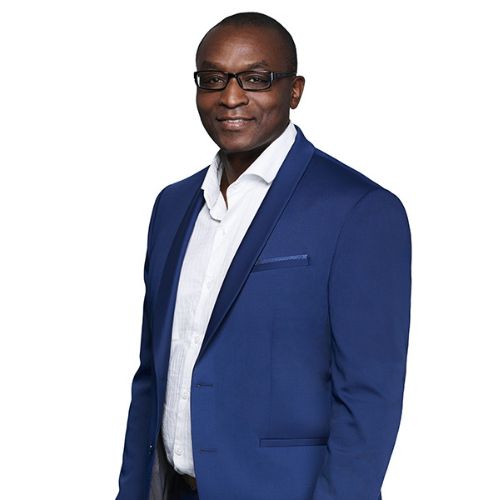Less than three and a half years after launching the largest Canadian fund of its kind, Caisse de dépôt et placement du Québec (CDPQ) has quietly shuttered Equity 25³, BetaKit has learned.
Back in October 2020, the Québec pension fund announced the creation of Equity 25³, dedicating $250 million CAD towards increasing diversity and inclusion (D&I) in growing small and medium-sized businesses (SMBs) based in Québec and across Canada.
At the time, CDPQ claimed Equity 25³ was “the largest Canadian fund ever created to target companies leveraging diversity as a vector of development and expansion.” CDPQ’s plan was for Equity 25³ to put that money into profitable SMBs and promising tech firms. The intention was for CDPQ to deploy this money over four years, per a document obtained by BetaKit.
BetaKit has learned that Equity 25³ made just four investments in that timeframe, having backed ApplyBoard, BKR Capital (via Teralys Capital), Sama, and Unito.
Today, Equity 25³’s webpage is no longer active and instead redirects to a page that outlines CDPQ’s broader investments in Québec. Wayback Machine’s most recent screenshot of the Equity 25³ webpage is dated September 27, 2023, indicating it was still active as recently as six months ago. As of that time, the Equity 25³ site did not have any investment committee listed, unlike earlier versions of the same webpage viewed by BetaKit.
Meanwhile, Wils Théagène, formerly a senior director of private equity (PE) at CDPQ and the architect of Equity 25³, is no longer with CDPQ or the fund. Théagène spoke with Québec publication Le Devoir last month about his departure and intentions to launch a new fund for diverse entrepreneurs. He has since confirmed to BetaKit that he left CDPQ and Equity 25³ last December after six and a half years with the firm.
CDPQ declined to confirm how much of the fund was deployed nor its plans for the remaining capital.
When reached by BetaKit via email, CDPQ director of media relations Kate Monfette effectively confirmed the end of Equity 25³. Monfette stated that while Théagène’s former colleagues remain part of CDPQ’s PE team, CDPQ is now running all PE investments through a single investment committee. Investments that were made via Equity 25³ are now part of CDPQ’s broader PE portfolio.
“We recently reviewed the structure of the [PE] portfolio to achieve our strategic objectives, which include simplifying governance,” said Monfette. “All files are now evaluated by a single investment committee that takes into account several factors—including our rigorous [environmental, social, and governance] criteria. We are always interested in investments that promote diversity, equity, and inclusion.”
Monfette declined to share any further rationale for this move, how much of the $250-million fund was deployed nor CDPQ’s plans for its remaining capital allocation, including whether or not it will still go towards D&I investments through this new investment committee along the same thesis as Equity 25³.
In an interview with BetaKit, Théagène also declined to disclose how much of that $250 million Equity 25³ has deployed to date. He did confirm, however, that during his time with CDPQ leading Equity 25³, the fund backed ApplyBoard, BKR Capital, Sama, and Unito.
RELATED: CDPQ launches $250-million diversity-focused fund
At Equity 25³’s launch in late 2020, Kim Thomassin, now CDPQ’s executive vice president and head of Québec, stated that D&I was a strategic priority for the pension fund. “Following several years of promoting gender equality, CDPQ is now broadening the scope of its actions to further address ethnocultural diversity issues,” Thomassin said at the time. “Creating Equity 25³ is one way of doing this.”
Through Equity 25³, CDPQ set out to make $5-million to $30-million investments into growing SMBs and tech firms willing to commit to ensuring that at least 25 percent of their boards, management teams, and shareholders comprised of people of diverse backgrounds, including women, visible minorities, and Indigenous peoples in the five years following any financing.
To support these objectives, CDPQ provided portfolio companies with operational guidance to help them implement a customized D&I strategy. In addition to these D&I-related commitments, CDPQ expected eligible mid-market companies to have “strong growth combined with a history of profitability,” and eligible tech firms to show “strong growth in sales, solid recurring revenue, and a competitive technological offering.”
In 2021, CDPQ president and CEO Charles Emond told the Toronto Star that Equity 25³ was a grassroots initiative brought up by CDPQ’s employee base. Théagène claimed to BetaKit that the idea for Equity 25³ was his following the death of George Floyd and the rise to prominence of Black Lives Matter. He said CDPQ leadership was “very supportive,” and noted that many folks across the organization mobilized help to make the fund a reality.
During his more than three years at the helm of Equity 25³, Théagène said that CDPQ also noticed some gaps in the ecosystem beyond the fund’s purview, including at both earlier and later stages. Per Théagène, Equity 25³ directly invested around the Series B stage, slightly before the Series C stage where CDPQ typically makes its first investments in tech companies.
To bolster its seed-stage pipeline, Théagène said Equity 25³ invested in BKR Capital. But he said one of the challenges the fund still encountered was the lack of other investors focused on financing entrepreneurs from diverse backgrounds at the seed and Series A levels. Beyond firms like BKR, Raven Indigenous Capital Partners, and the women-focused Canadian VCs that have emerged in recent years, Théagène said that there were few other investors focused on helping Black and other underrepresented founders in Canada get to the stage where CDPQ could invest through Equity 25³.
“From this work, I realized that the gap is not at [Series] B, the gap is at [Series] A,” said Théagène, who claimed that CDPQ’s Equity 25³ has now given him “the recipe” for his next fund. “With my next venture, I wanted to address the gap at [Series] A and then move up [and] continue to do growth.”
Multiple ecosystem sources BetaKit spoke with indicated that from the outside, Equity 25³’s investment pace appeared slow for a fund of its size.
One source echoed Théagène’s assertion that there is more of a gap at the Series A level for this type of investing, questioned why CDPQ did not go earlier, and asked whether Equity 25³ was set up for success given its Series B focus. They also expressed hope that other industry players do not take this fund’s fate as a knock on these types of investment vehicles.
Another source emphasized that Canada needs to provide more funding to Black founders at the angel, pre-seed, and seed levels, noting that Equity 25³ was starting closer to the middle of the startup lifecycle, a stage where there are fewer Black entrepreneurs than there should be in part due to the dearth of early-stage capital available to them.
Théagène claimed that Equity 25³ was designed as a “pilot” that would allow him and CDPQ to gain a better understanding of the market, and collect data on where the gaps in the ecosystem exist, and said that the fund has “served its purpose” as such. “CDPQ wants to be part of a solution, so this is why I speak very highly of the organization because they gave me the opportunity to do it,” he added.
“With my next venture, I wanted to address the gap at [Series] A and then move up [and] continue to do growth.”
However, there was no public mention of Equity 25³ being a pilot program either in the announcement release or subsequent media coverage viewed by BetaKit. Multiple sources BetaKit spoke with also expressed skepticism about the claim that it was a pilot, with one noting that it is “unusual” to announce a pilot with a full allocation such as Equity 25³ had.
As to why Théagène is now building his own fund independently rather than restructuring Equity 25³ or developing a new one within CDPQ, Théagène said that as a pension fund, from a size and risk standpoint, it did not make sense for CDPQ to make direct investments at the seed and Series A levels.
Théagène believes that it will take more than one investor to fill the holes in the market that CDPQ saw through Equity 25³, and he hopes to become one of them through his new fund, which he has named Citadelle Capital in honour of the Citadelle Laferrière fortress in Haiti where he was born.
He described Citadelle Capital as “Fund II” after Equity 25³, and noted that it will focus on supporting diverse entrepreneurs across a wider variety of stages, beginning with Black entrepreneurs through its first fund before expanding to other groups. Théagène said he intends to apply his past investment experience and learnings from Equity 25³ to Citadelle Capital.
“I have the data, I have the understanding of this capital landscape, I have the pipeline, and I want to mobilize Canadian institutions to work together to finance a fund where we can address all the gaps,” said Théagène.
Théagène hopes CDPQ will back Citadelle Capital alongside a broader swath of institutions. He aims to raise $150 million for the fund, which he said he hopes to close later this year.
Feature image courtesy CDPQ.



